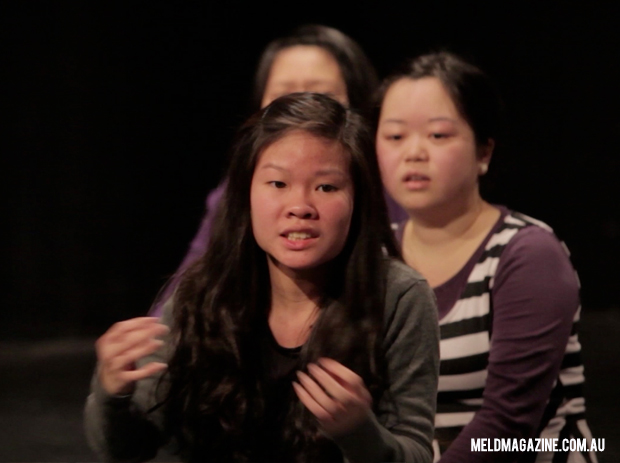Life’s a Gamble: Theatre production sheds light on problem gambling
FOLLOWING the Life’s a Gamble theatre production exploring the issue of problem gambling among young international students, Rebecca Di Nuzzo brings you the backstory of those who turn to gambling when the reality of life in Australia doesn’t pan out.
The decision to study in Australia is a gamble for international students. Large sums of money are invested and students are forced to leave family, friends and partners in the hope of a better education and brighter future.
Life’s a Gamble is a theatrical project reflecting the international student experience in Australia. It addresses the prevalence of problem gambling among young international student groups, who through a combination of stress, loneliness and boredom, turn to casinos to cope with life in Australia.
Delving into the personal experiences of the students themselves, the production was written and performed by international students from the University of Melbourne. The students had no prior theatrical experience, worked without a script and developed the production through a series of workshops over 12 weeks where they shared their stories and discussed the problems they faced upon arrival in Australia.
Originally performed during Responsible Gambling Awareness Week in May 2012, the success of the original production in raising awareness of the issue led the project to be expanded. Further workshops were conducted at the University of Melbourne by Director Catherine Simmonds, with a subsequent performance held at RMIT University on July 17 this year.
Attended by Meld, this final performance was accompanied by a discussion panel to build on ideas and issues raised, with the cast responding to questions from the audience about their experiences as international students and the prevalence of gambling.
The financial, academic and social stressors many students face upon arrival in Australia were discussed, as was the social isolation many felt and the attraction of gambling and casinos. As one student explained, the life they and many of their peers envisioned prior to their arrival in Australia is often very different from the actual experience. Many students struggle to make friends, support themselves and keep up with their studies, especially if English is their second or third language.
Most cast members said they had no experience with gambling prior to their arrival in Australia, and those that did naively thought it would be a useful way to pay tuition fees and earn money to support themselves and family back home. Others cited the attraction of casinos as a way to stave off boredom due to lack of friends and social networks.
Many of them (international students) don’t want to seek help when problems do occur. One of the hardest things is to get international students to seek help when they need it. – Wesa Chau
One cast member said, “this is our life”, with another adding “the cards will always keep you company”.
Director Catherine Simmonds said many international students were already heavily active online due to a lack of social networks in Australia, and it is often an easy jump from online gambling to online gaming.
Other activities such as drinking and smoking are often closed to international students due to religious and cultural reasons. Therefore, Ms Simmonds said this therefore meant that gambling “slipped through the cracks”, becoming the preferred mechanism to cope with stress and anxiety.
Ms Simmonds hopes similar theatre projects will be rolled out to other universities in the future, as she feels it is a useful way to communicate the problems international students face in Australia.
Wesa Chau, former young Australian of the year and ambassador for Responsible Gambling Awareness said many international students are reluctant to seek help when gambling problems arise.
“Many of them (international students) don’t want to seek help when problems do occur. One of the hardest things is to get international students to seek help when they need it,” Ms Chau said.
She added one of the prime benefits of Life’s a Gamble was the information it communicated to students and the wider community about the issue, and how students may seek help for themselves or their friends.
The issue of problematic gambling habits among young international students has been explored by a study led by Dr Anna Thomas and Professor Susan Moore of Melbourne’s Swinburne University.
The study found that while international students are less likely to gamble than local students, they are more vulnerable to developing problematic gambling habits than their local cohorts, as they may be more naïve about the risks and overly impressed with how readily gambling and casinos can be accessed in Australia.
It cites a culmination of factors, focusing on the student’s emotional wellbeing and stress stemming from financial pressures, loneliness and study as prime contributors to developing gambling problems. It also suggests the greater the acculturative stress a student feels, the higher the chance there is of developing problems.
Should you or someone you know require assistance for gambling related problems, contact Gamblers Help 1800 858 858 or visit their website. Translation services are also available if required.



